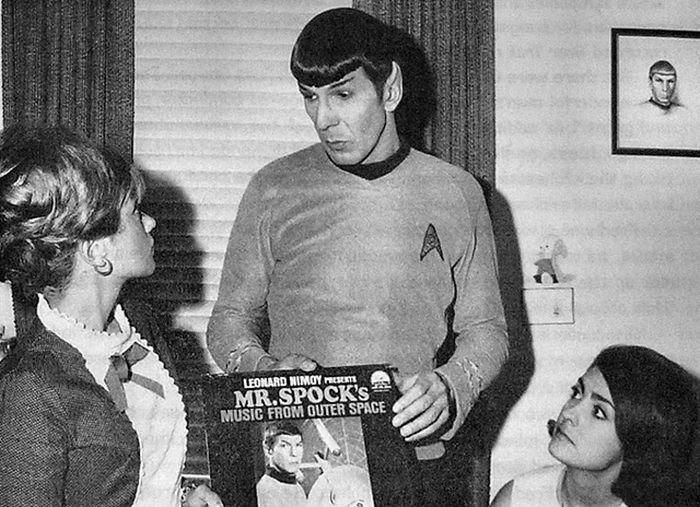|
|
Star Trek, Behind The Scenes
|
Roddenberry intended the show to have a highly progressive political agenda reflective of the emerging counter-culture of the youth movement, though he was not fully forthcoming to the networks about this. He wanted Star Trek to show mankind what it might develop into, if only it would learn from the lessons of the past, most specifically by ending violence. An extreme example are the Vulcans, who had a very violent past but learned to control their emotions. Roddenberry also wanted to imply an anti-war message, as well as depicting the United Federation of Planets as if it was like an ideal, optimistic version of the United Nations. His efforts were somewhat thwarted by the network's concerns over marketability, e.g., they were opposed to Roddenberry's insistence on a racially diverse crew of the Enterprise.
Beginnings
In 1964, Roddenberry made a proposal for the original Star Trek TV series, to Desilu Studios as a "Wagon Train to the stars." The show's first pilot, "The Cage," starring Jeffrey Hunter as Enterprise Captain Christopher Pike, was rejected by the network; however, Desilu executives were still impressed with the concept and made the unusual decision to commission a second pilot: "Where No Man Has Gone Before".
|
|









